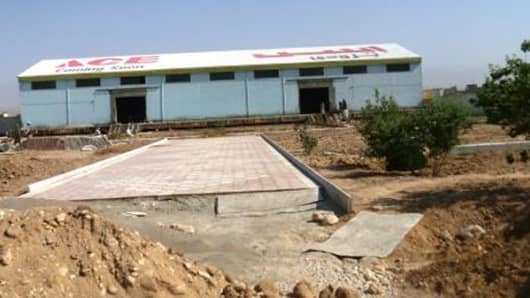Growing uncertainty swirls around Afghanistan's economic climate as the country inches closer to December 2014, when U.S. and international combat troops are expected to withdraw from an increasingly unpopular war. Many Afghans believe the end of the war also means the end of international investment in their country.
But there is a team of Afghans working with Americans hoping to ease at least some of those worries.
Ace Hardware has become the first American business to announce a partnership with an Afghan corporation to open a franchise in the war-riddled country.
At a press conference in Kabul at the end of May, the group Safi & Safi, represented by Najib Safi and Abdul Karim Safi, announced a multimillion-dollar partnership with Ace.
The Safi name is well-known in Afghanistan's private sector. Safi & Safi is an offshoot of the already powerful financial player the Safi Group, which runs hotels, malls and an airline in the country.
But this new venture means more to the Safis than just another business opportunity. For them it is a way to bring the United States and Afghanistan together after a decade of war that has tarnished their relations.
"The Afghans' perceptions toward the Americans in terms of what they did in rebuilding Afghanistan is unfortunately not very positive," Karim Safi said during an interview with NBC News.
But he believes that the private sector can change that perception.
"Ace is something that will bring [quality] standards, service and job opportunities," Safi said.




